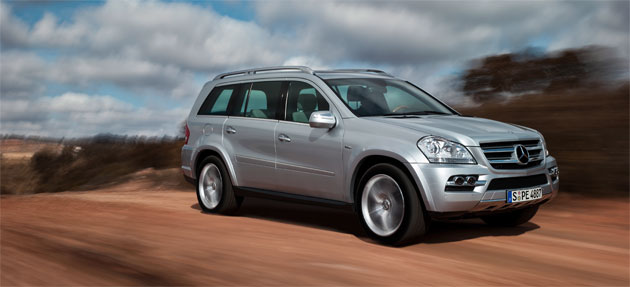There's nothing like a rant from an old friend to focus the mind.
We recently read a profanity-laced note from a high school pal excoriating all the major automakers for not selling small, high-mileage diesel cars and trucks in the U.S.
We referred him to an article about why we can't buy small European diesel cars in the States. After further discussion, it made sense to turn it into a list. So, here are our five reasons why automakers are reluctant to bring diesel-engined cars and light trucks into the U.S. market.
As we said:
Before you start flaming us, understand: These are the reasons [carmakers] give for not offering small diesels. If you want to weigh in, the comments box is below. But don't shoot the messenger, OK?

2010 Volkswagen Golf TDI
(1) Diesel engines cost more to build
Diesels are about 15 percent more expensive for carmakers to build than gasoline enginee of equal output. That drives up the cost of the base vehicle.
(2) Emissions treatment for diesels is complex and expensive
The U.S. has the toughest auto emissions standards in the world, with much more aggressive limits on particulate matter (aka "soot") than European nations. That requires expensive aftertreatment for diesel engines, like the Mercedes-Benz Bluetec system.

The Mercedes ML350 BlueTec replaces the current ML320 for 2010
Together, the first two reasons make diesel cars a lot pricier in the States than gasoline cars. It's worth nothing that Europeans pay about 20 percent more for their cars--with less standard equipment and lesser performance--than we do in North America.
That's why Ford doesn't offer a small diesel in the Transit Connect, even though fleet operators want that option. With aftertreatment, a diesel Transit Connect could rise from about $24,000 to $28,000, or more, which no one is likely to pay for a compact front-wheel-drive commerical van.
(3) The payback on diesels is hard to calculate
As Barbie famously said, "Math is hard."
Most car buyers consider and buy "green" cars to save money. While diesels get better fuel economy, they also cost more. And the fuel often costs more. So you have to calculate over the lifetime of the car whether you'll save money. Which requires math. Which is hard.
Europeans, on the other hand, have enjoyed cheaper diesel fuel for decades, because tax policy has largely kept it that way.

Barbie Ford Mustang
Worse yet, retail car buyers overweight purchase price (because we know what we can afford today) and underweight total cost of ownership (because we think the car won't break, we'll keep it fewer years than we will, etc.).
(4) Diesel fuel isn't available everywhere
Only about half of all U.S. filling stations offer diesel fuel at all. It's common in rural areas, for farm equipment, and in cities, which have lots of delivery fleets. It's less common in residential areas of suburban sprawl.
Of stations with diesel, only about half offer it on the same pump islands as gasoline. While drivers may be willing to fill up with diesel, they may be less happy about doing it out back with the semis.

gas pump
(5) Buyers think diesels are dirty and costly
Diesels are no longer dirty. But ask an average car buyer to picture a vehicle with a diesel engine, and they're as likely to come up with a garbage truck or a transit bus as a 2011 Audi A3 TDI--which was, by the way, last year's Green Car of the Year.
Consumers clearly know clean diesels are pricey. And to some extent, the market backs them up. Aside from long-time diesel stalwart Volkswagen, what makers sell clean diesels these days?
Mercedes-Benz, BMW, and Audi, which are hardly known as mass-market, affordable brands.
++++++
The news isn't all bad. More diesels will slowly enter the market. In late September, in fact, Tom Stephens--he's a vice chairman of General Motors--said that GM would offer an unspecified passenger vehicle with a diesel engine in the U.S.
In the end, as we wrote to our high-school friend, it's NOT an evil plot on the part of automakers that small diesels aren't widely available. Despite the many avid diesel fans out there, if automakers thought they could sell those vehicles--at a profit, please note--they'd do it in a heartbeat.
Truly.













